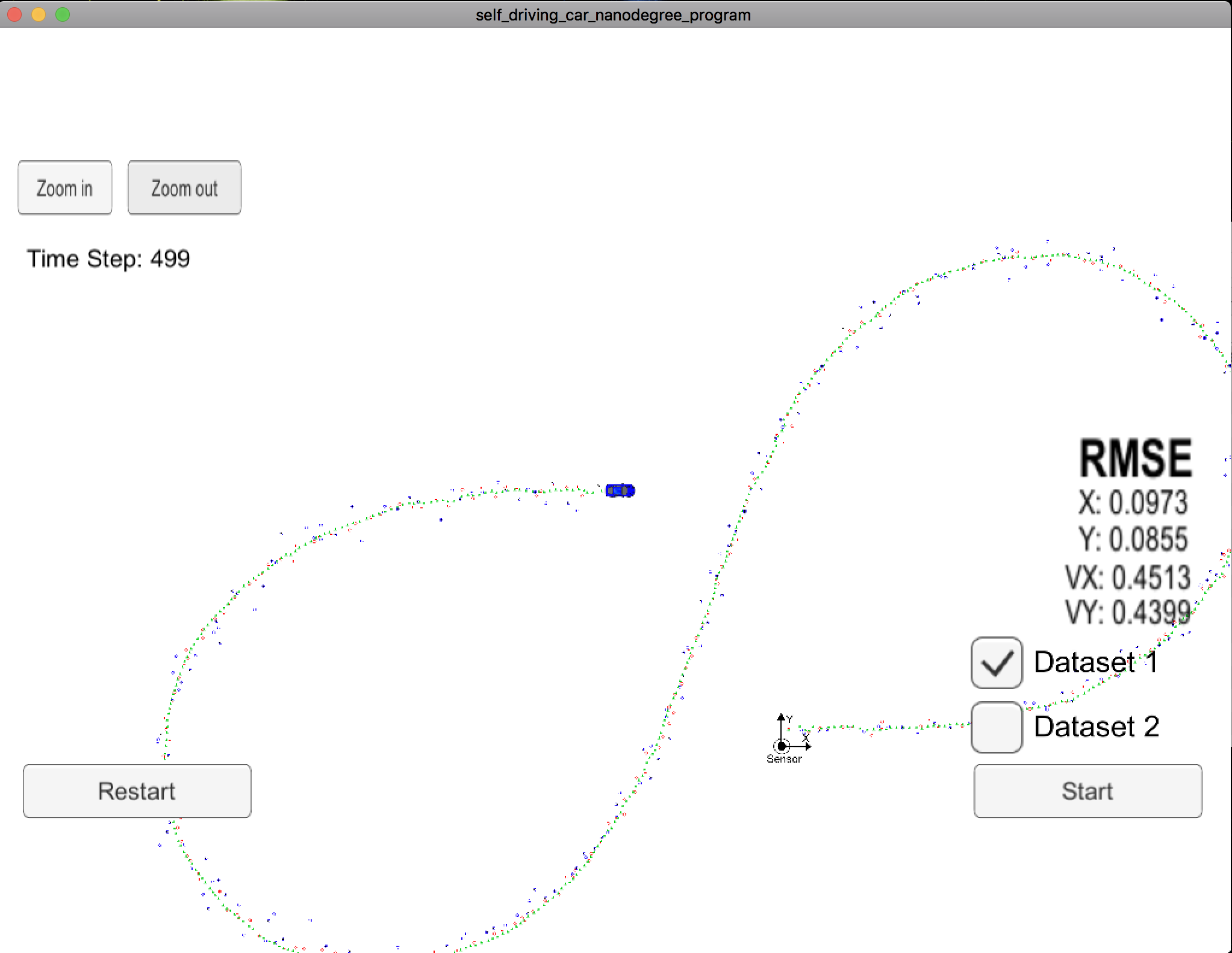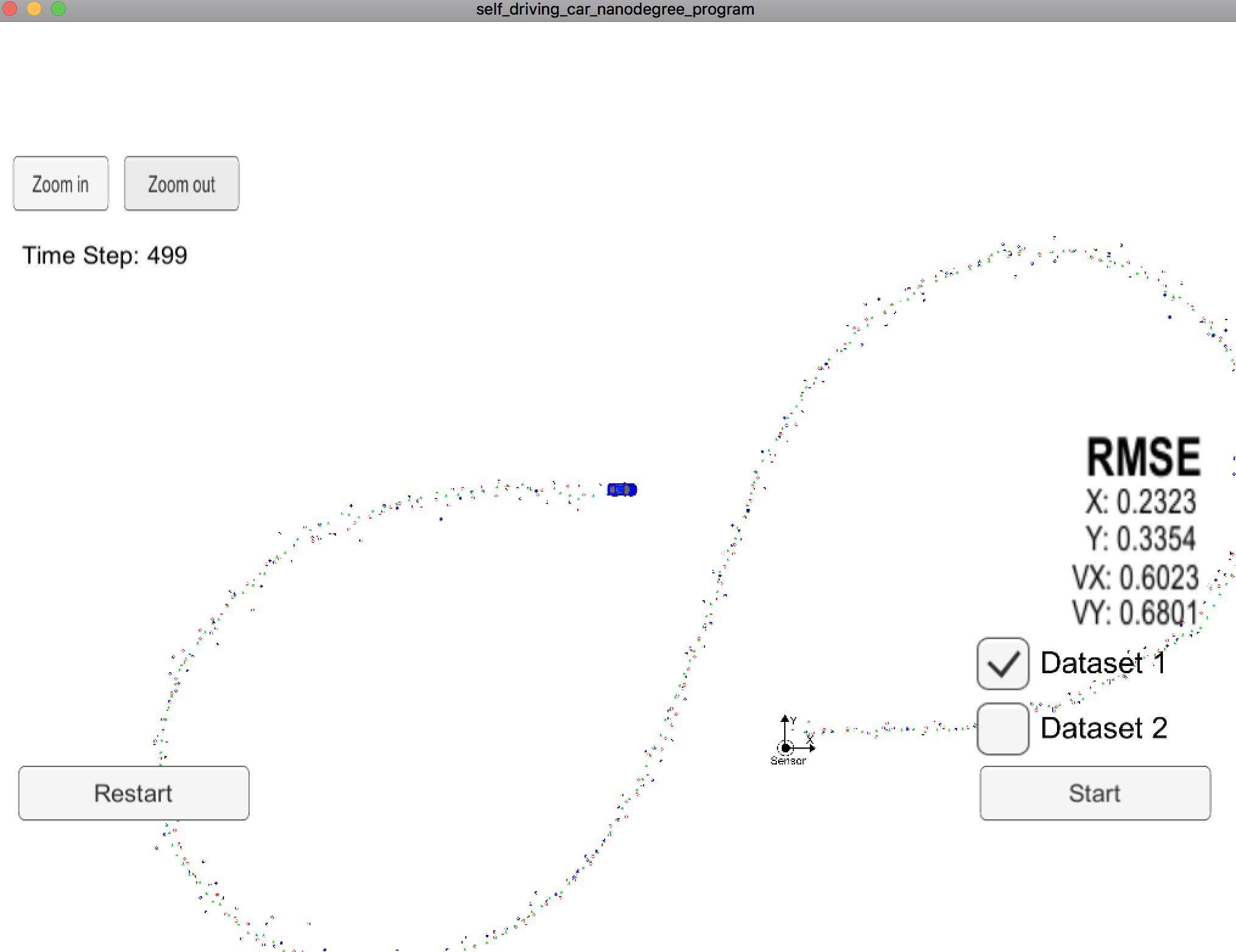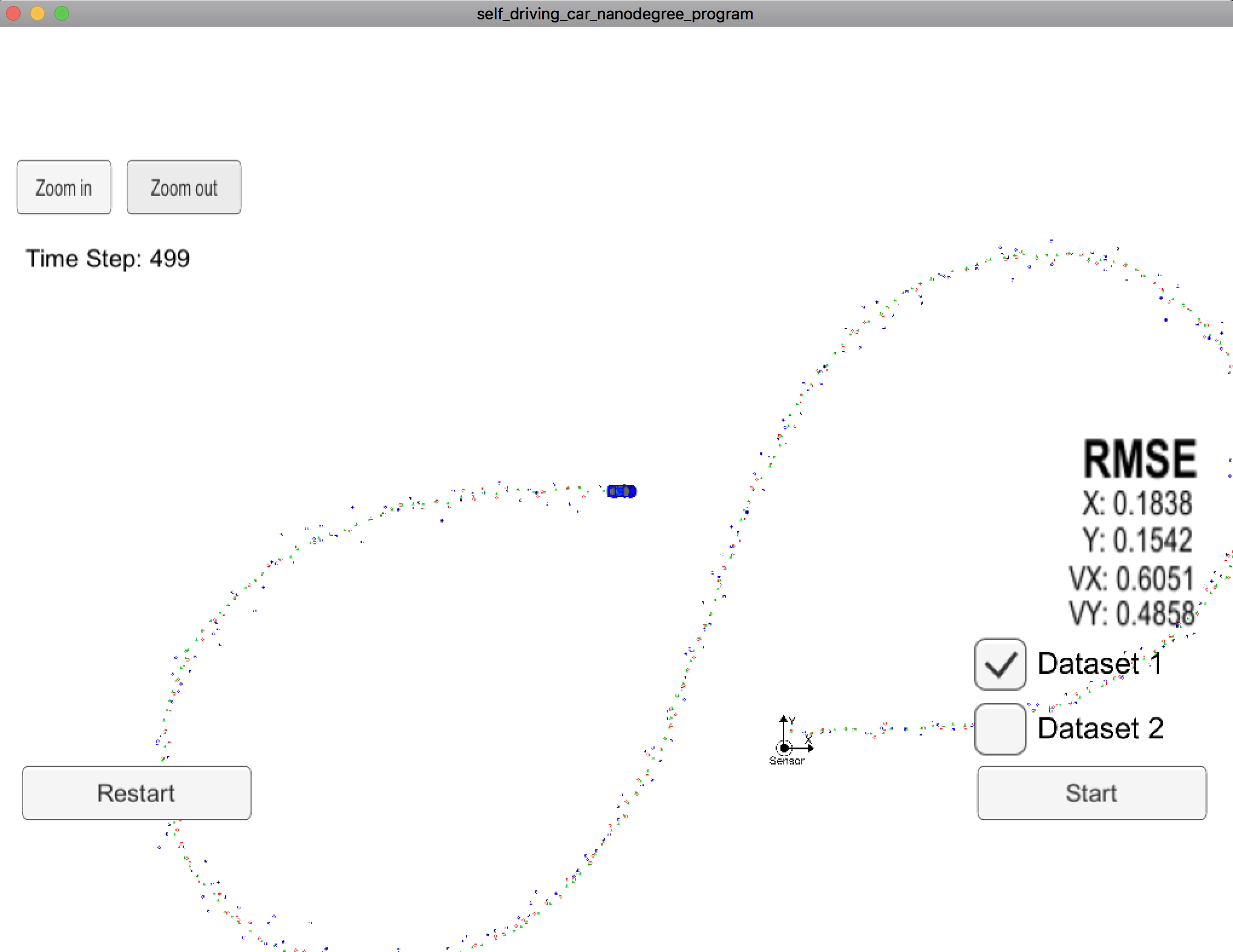This project consists of a c++ implementation of an Extended Kalman Filter (EKF) to estimate the state (position and velocity) of a moving object using noisy Lidar and Radar sensors. This project improves the estimations by using the Kalman Filter to fuse the sensor readings.
The main goals of this project is to develop a c++ kalman filter that successfully estimates the position of a moving object from the Udacity Simulator. Figure 1 depicts an example of the filter estimating (green dots) the object position. The RMSE (Root Mean Square Error) values estimates the accuracy of the EKF.
The source code for this project is available at project code.
This project requires the following python packages to work:
- Udacity Simulator;
- cmake 3.5 or above;
- make 4.1 or above;
- gcc/g++: 5.4 or above;
- uWebSocketIO;
This project uses the open source package called WebScokectIO to facilitate the communication between the EKF and the Udacity Simulator. To install all the websocketio libs, execute the script install-mac.sh from the project repository directory.
To run this project, you first need to compile the code. After the code is compiled, please open the Udacity simulator.
The main program can be built and run by doing the following from the project top directory.
- mkdir build
- cd build
- cmake ..
- make
- ./ExtendedKF
- Run the Udacity Simulator (./term2_simulator)
Figure 2 shows the EKF estimation using only RADAR readings. The RMSE values of 0.23, 0.33, 0.60, 0.68 show the EKF accuracy to estimate the moving object position and velocity.
Figure 3 shows the EKF estimation using only LIDAR readings. As we expected from the LIDAR and RADAR covariance matrix, the accuracy is higher using only the LIDAR sensor. The RMSE values of 0.18, 0.15, 0.60, 0.48 show the EKF accuracy to estimate the moving object position and velocity.
Finally, Figure 4 shows the EKF estimation using RADAR and LIDAR readings. The RMSE values of 0.09, 0.08, 0.45, 0.43 show the high accuracy the Sensor Fusion promotes to estimate the moving object position and velocity.


